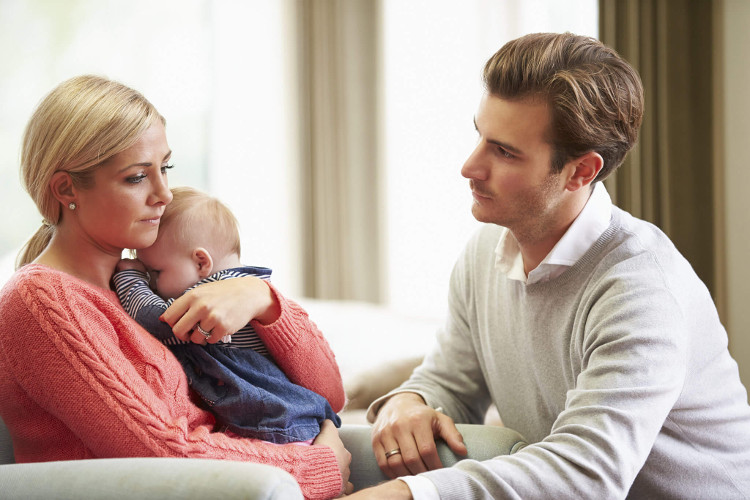10 methods to help young mothers get rid of postpartum depression
Postpartum depression is an increasingly common disease and has many adverse effects on health, even the lives of mothers and children.
To take care of a newborn baby, the mother will have to overcome many difficulties, fatigue and pressure. Things will get even worse if you have postpartum depression (postpartum depression). This disease any mother can encounter, so whether you are healthy and have a peaceful family life before birth still need to care and learn how to deal with it.
How to deal with postpartum depression:
1. Talk, confide in family and friends

Talk to people to help you solve your problems.
Find ways to share with your loved ones to understand your feelings and difficulties so that they can find ways to help and solve those problems, especially psychological problems.
2. Do not hug everything
Do not try to do everything yourself from taking care of the child to the market, cooking, cleaning, etc., asking for the support of relatives, especially husbands. This work not only helps you to share the burden of work, it also helps improve the mood very effectively.
3. Take time for yourself
Try to give yourself a private time to make personal interests like listening to music, walking, reading, .
4. Create sleep habits whenever possible
When taking care of a child, you will encounter many difficulties and hardships, so take advantage of sleeping whenever possible. This habit helps you compensate for the lack of sleep at night.
5. Exercise regularly

Exercise improves the mood of people with postpartum depression.
This work effectively improves mood for people with postpartum depression.
6. A healthy diet, divided into several meals
A nutritious diet with fruits, vegetables, protein, low-fat milk and whole grains can help you feel healthier, replenish essential nutrients during care and breastfeeding.
7. Do not drink alcohol and use stimulants
Avoid high sugar foods like soda, caffeine and alcoholic beverages. These foods will only make your mood and health condition worse.
8. Go to the doctor for psychological treatment
This is the most direct and effective treatment when the mother has postpartum depression.
9. Take antidepressants

The use of drugs must comply with the doctor's instructions to be safe for nursing mothers.
This is an appropriate measure for mothers with moderate or severe disease and psychological treatment but progress is not satisfactory. The use of drugs must comply with the doctor's instructions to be safe for nursing mothers.
For prescription drugs, you should ask the doctor to explain the information: the name of the drug, the effects after taking it, the time it takes effect and the side effects (long or short term). ) may encounter.
10. Additional therapies
This concept refers to complementary therapies that do not use western medicine such as hypnosis, yoga, massage, aromatherapy, etc. These methods help improve morale, relieve symptoms of depression mother's feeling. However, no matter what method you choose, consult your doctor to avoid any side effects on the medication you are treating.
- Postpartum depression - Signs, causes and prevention
- Postpartum depression - Signs, causes and prevention
- The new method accurately predicts 80% of postpartum depression
- Two genes predict the postpartum depression
- Eating a lot of fish helps reduce postpartum depression
- Some notes for HIV-infected mothers during the postpartum period
- Depression - how scary is it?
- Unbelievable benefits from postpartum skin contact
- Depression before birth is easy to cause depression for the next generation
- 7 facts about depression
- This scientific breakthrough will help 70,000 pregnant women do not die of blood loss
- Why are more and more young people suffering from depression?
- Young crocodiles have known to call their mothers before they were born
 Green tea cleans teeth better than mouthwash?
Green tea cleans teeth better than mouthwash? Death kiss: This is why you should not let anyone kiss your baby's lips
Death kiss: This is why you should not let anyone kiss your baby's lips What is salmonellosis?
What is salmonellosis? Caution should be exercised when using aloe vera through eating and drinking
Caution should be exercised when using aloe vera through eating and drinking